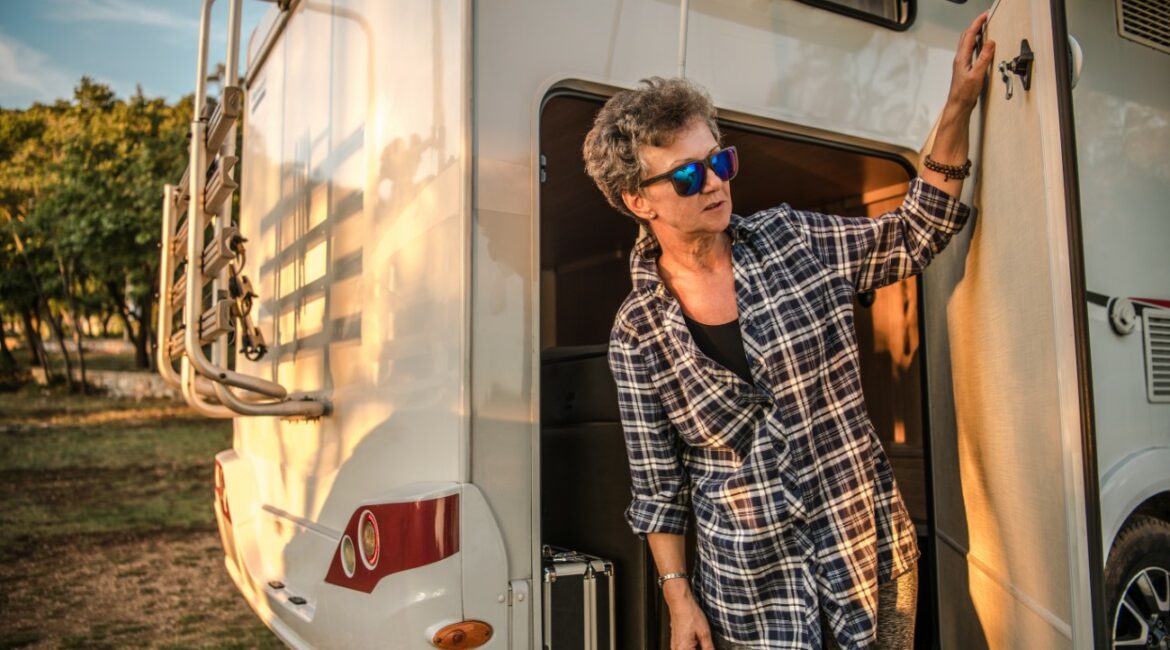Hello, fellow adventurers! It’s Doug here, sharing some wisdom from the road. I’ve camped in a variety of terrains – from towering mountains to lush forests. And if there’s one thing that stands as important as your RV’s engine, it’s the quality of the water you consume and use. You wouldn’t drink from a murky pond on a trail, so why settle for less in your RV? Let’s dive deep into the world of RV water filters.
Why Invest in an RV Water Filter?
- Safety First: Filtering out harmful bacteria and contaminants ensures you’re sipping on safe and clean water.
- Taste & Odor: Nobody wants water that tastes or smells off. Good filters ensure you get water that’s refreshing to drink.
- Appliance Longevity: Sediments can harm your RV’s plumbing system. Filters can prolong the life of your water fixtures.
What to Look For When Buying an RV Water Filter
- Filter Types:
- Sediment Filters: Great for removing visible particles. Think of them as the basic tents in the camping world.
- Carbon Filters: They remove bad tastes and odors. It’s like ensuring your camping meals are top-notch!
- Ceramic Filters: Useful for bacteria and microbial removal. The high-end sleeping bags of the filter world.
- Flow Rate: It determines how quickly water passes through the filter. A fast flow is like a swift-setup campsite.
- Lifespan: Just as you’d want durable camping gear, ensure your filter lasts long before needing replacement.
- Price: Like picking the right camping gear, there’s a balance between quality and budget.
Understanding the Micron Rating
A critical aspect of choosing a water filter is the micron rating, which indicates the size of particles the filter can remove. A lower micron number means finer filtration, catching more and smaller particulates. For instance, a 0.5-micron filter will remove cysts that can cause waterborne diseases, while a 5-micron filter may only catch sediment and larger particles. When shopping, consider the Camco 40043 TastePURE Water Filter with Flexible Hose Protector, known for its 20-micron sediment filter, which is a solid all-around choice for RVers.
Inline versus Canister RV Water Filters
Inline filters are compact and attach directly to the hose feeding your RV, perfect for travelers with space constraints. Canister systems, on the other hand, often offer multi-stage filtration and higher capacity, suitable for full-timers or those with higher water quality demands. The Clearsource Premium RV Water Filter System, a favorite among RV enthusiasts on Amazon, boasts a robust canister design with impressive filtration capabilities.
Maintenance and Care for Longevity
Proper maintenance of your RV water filter extends its life and ensures optimal performance. Always follow the manufacturer’s instructions for cleaning and replacing cartridges. Before winter storage, remove and bypass the filter to prevent freezing damage. For care on the go, I’ve found the Camco Water Tank Filler with Shutoff Valve invaluable, as it allows precise control while filling the tank, reducing the chance of sediment disruption.
Considering Certified Filtration Standards
Look for filters certified to meet NSF/ANSI standards, which guarantee that the filter performs as advertised. Filters like the Culligan RV-800 Exterior Pre-Tank Recreational Vehicle Water Filter come with this certification, offering peace of mind that you’re getting a filter that has been rigorously tested to reduce specific contaminants.
Water Testing Kits for RVers
To understand the specific needs of your water filtration system, consider using a water testing kit. This can guide you on whether you need a filter for bacteria, heavy metals, or just taste and odor. The Safe Home ULTIMATE Drinking Water Test Kit is an excellent tool for this purpose, offering comprehensive results that can be found on Amazon. Knowing your water quality can help you tailor your filtration system to provide the best protection for your drinking water.
FAQs: The Best RV Water Filters Buyers Guide
How often should I replace my RV water filter?
Typically, every 3-6 months, but it depends on usage and water quality. Like checking your camping equipment seasonally!
Can RV water filters handle hot water?
Most are designed for cold water. Ensure you check the specifications, similar to ensuring your camping jacket is weatherproof.
Are all filters one-size-fits-all?
Not necessarily. Some RVs might require specific types or brands. It’s like picking the right-sized tent for your camping squad.
Do these filters also soften water?
While many filters can improve taste and remove contaminants, specific water softeners are needed for hard water. Think of them as the comfy RV mattresses for your water system!
Why is water flow rate important?
A slow rate can be frustrating, especially when filling tanks or taking showers. Imagine setting up camp and waiting ages for that campfire to light up!
To all the wanderlust souls reading this, remember, your RV journeys are as smooth as the choices you make. From the paths you tread to the water you drink, every detail counts. And just like how the right camping spot makes all the difference, so does clean, purified water in your RV. Here’s to safe sips and fantastic trips! Happy RVing! – Doug.
- Ultimate Guide To Playing Online Casinos - May 27, 2024
- Addiction Recovery Books Worth Reading - January 24, 2024
- Homeschooling and Advocating for Child-Centric Reforms - November 18, 2023









